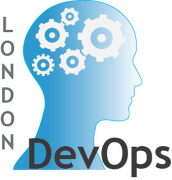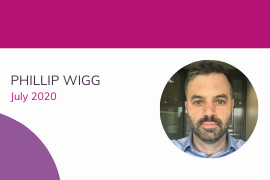Hiring DevOps talent has become increasingly competitive due to its necessity in modern software and its growing popularity among FinTech start-ups, consultancies, and other tech-focused businesses.

More businesses are recognising the benefits of hiring DevOps talent, for example, Nationwide Mutual Insurance Co., a major US insurance company, reduced its system downtime by 50 per cent by using DevOps. A DevOps Engineer is a highly specialised role that requires extensive experience. Therefore, establishing an intelligent recruitment strategy is key to securing talented professionals that can propel your DevOps strategy.
Evaluating your company’s vision and the level of maturity of your current DevOps strategy allows you to identify exactly what resources you require to achieve your business goals.
DevOps can mean different things to different people, so it is important to discuss the candidate’s goals and their current stage of DevOps strategy implementation, as it allows you to determine if they match the skill set you require. If you don’t wish to specifically define your aims to the candidate, you could listen out for buzzwords they may mention that align with your aims.

Also, familiarising yourself with industry trends can help you refine your hiring strategy and make you stand out from the competition when looking to attract candidates and meet their expectations.
Being Flexible
Opening your talent pool even internationally during a candidate search or even casting a wider net geographically allows you to reach a wider variety of professionals with the right skill set for the role. There are a number of DevOps professionals who are happy to relocate for a great opportunity, bringing a fresh approach and innovative ideas but this means funding relocation costs. Rather than homing in on job titles, focus on their skill sets, for example, practice in Continuous Delivery or soft skills that show potential. They might not be currently in the role, but possess in-depth knowledge of systems, technical skills, and a mindset to thrive in a DevOps position.

A willingness to negotiate with the candidate can prove to be beneficial over losing a potential professional. Clients can expect to be variable with their employment packages as companies are known to propose salary increases, or even fund pensions to retain their current talent. To prevent losing them to a buy-back, offer something that differs from other companies, you could offer wider exposure to industry training and events, flexibility, or a higher salary.
If your salary is competitive with other companies, it will show that your organisation is on par in terms of reputation and efficiency. Ideally, you should offer a salary at the higher end of the range, if it is on the lower end, you could compensate by offering additional perks and benefits.
Acting Swiftly
Once you have sourced a DevOps professional, acting swiftly decreases the likelihood of losing them to a counteroffer or another employer. Although ensuring you hire the right candidate requires a lengthy recruitment process, candidates themselves can make snap decisions from interviews. A long waiting period post-interview increases the chance for other organisations to place offers. If an interview in person proves to be taking too long to organise, arrange a skype call (which we are all now familiar with post-pandemic).
Making your candidate aware from the outset of realistic time frames helps them know when to expect to hear from you. Ultimately, when it comes to such a competitive market, speed and engagement are key. If you ghost your candidates even for just a few days, expect to miss out.
Looking for the right skills
An ideal candidate is one with a high aptitude and a propensity to learn, who is invested in your business. Cultivating the talent that can make an impact on your business is most important. To attract said employees, you need to present yourself as the best fit for them. A clearly defined progression path or career development support as well as an understanding of where the market is going and what attracts them. Recognising soft skills such as communication is vital for a DevOps Engineer; they can write clearly, listen closely, and ask questions to better understand the business.
 As DevOps Engineers work closely with the development team, the smoothness of their communication ensures everything runs smoothly. You will come across candidates with a range of personality traits and interests including some extroverted and introverted. Your hiring goal is to find the right person who aligns with your company’s mission and culture while looking out for inflexibilities – too much introversion is unhelpful for communication. Beware of frequent jumps in employment indicating a lack of commitment, it is important to dig into the reasons behind these.
As DevOps Engineers work closely with the development team, the smoothness of their communication ensures everything runs smoothly. You will come across candidates with a range of personality traits and interests including some extroverted and introverted. Your hiring goal is to find the right person who aligns with your company’s mission and culture while looking out for inflexibilities – too much introversion is unhelpful for communication. Beware of frequent jumps in employment indicating a lack of commitment, it is important to dig into the reasons behind these.
How to find them
To find the best DevOps talent, LinkedIn is a popular platform for DevOps engineers who are looking for roles. They often are part of forums and groups where they share ideas and develop networks. Attending DevOps conferences will help you make connections with a number of DevOps Engineers.

At Prism Digital we co-organise London DevOps meet-ups which provide excellent opportunities for employers to speak to those involved in the DevOps industry. DevOps Engineers are hard to find alone so using a professional IT employment company can help massively.
If you are looking to employ people with a very specific skill set, like DevOps Engineers, using a specialist agency that is well-versed in the market is your best bet.









